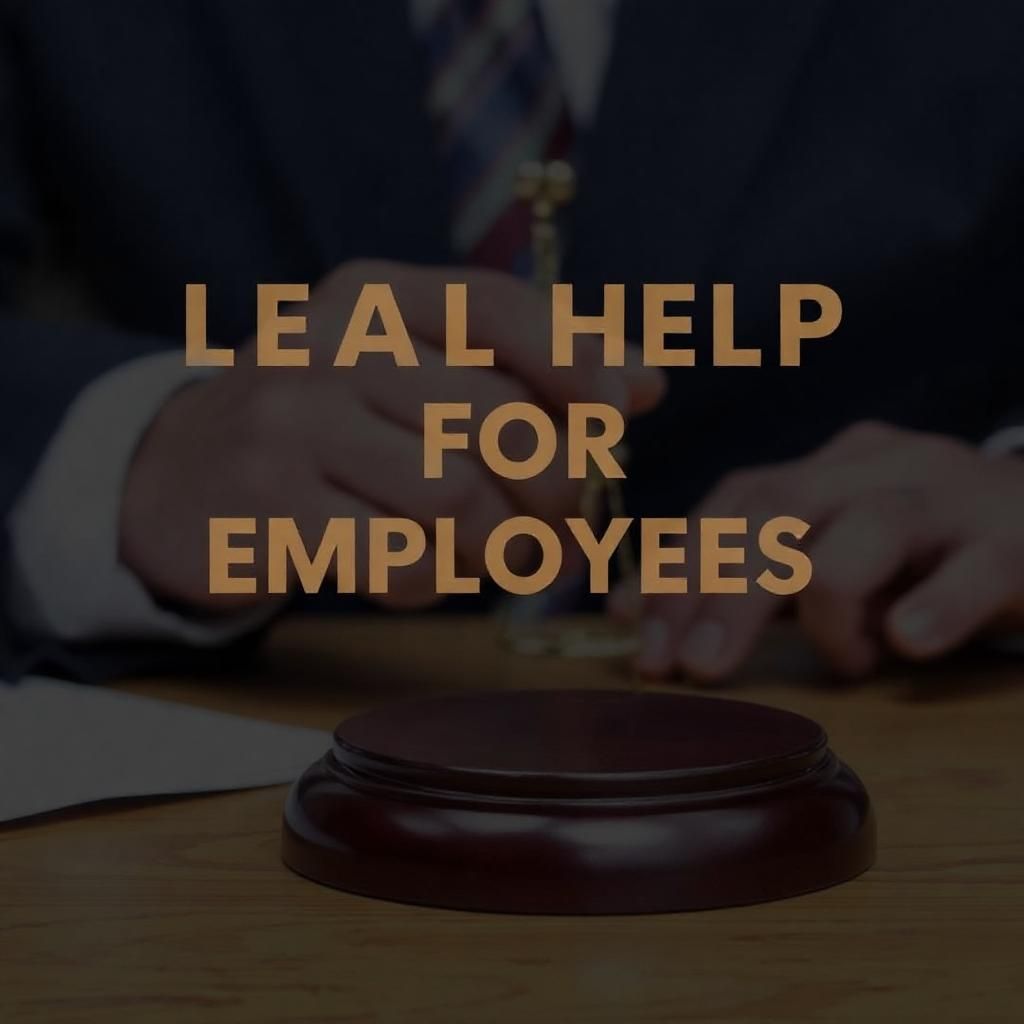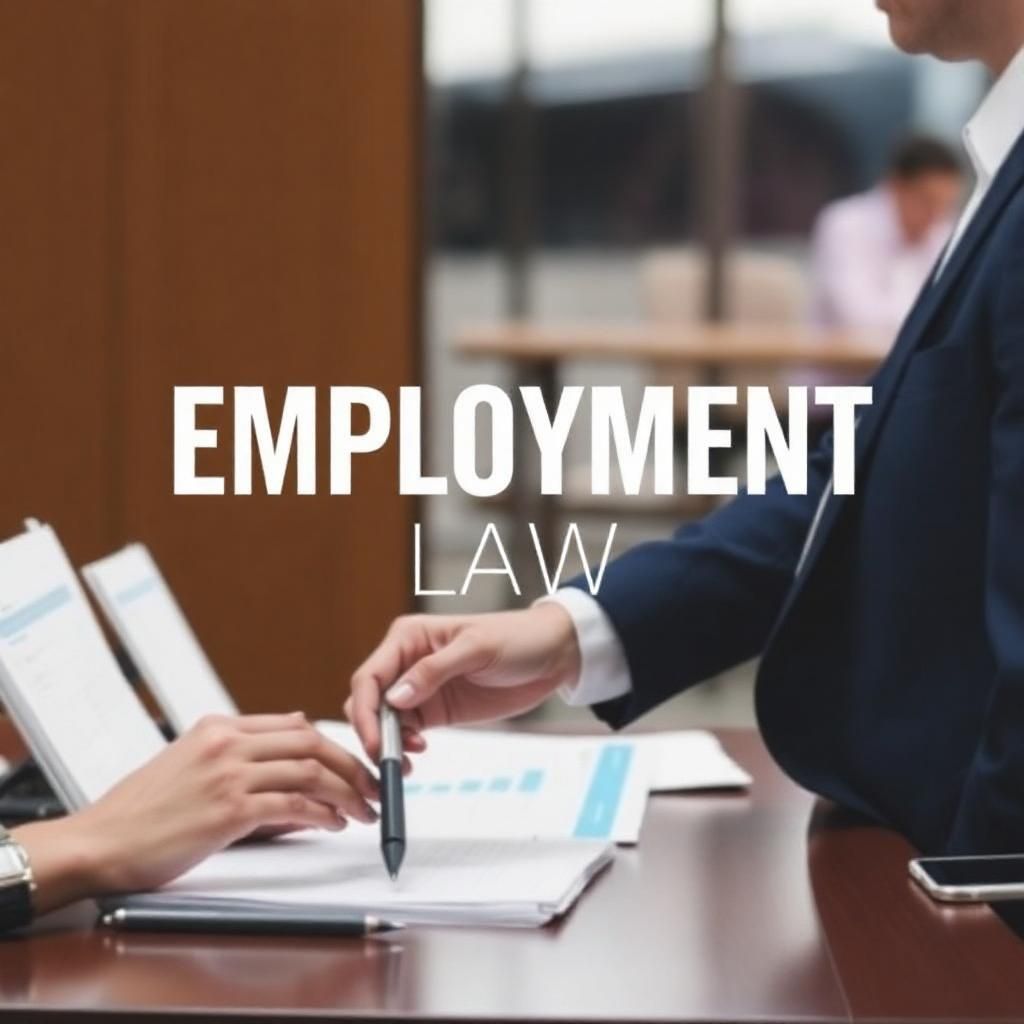It can be difficult to navigate Georgia’s employment laws, particularly if you’re attempting to comprehend your rights as an employee in 2025. It’s important to understand the protections Georgia law provides, regardless of whether you’re dealing with discrimination at work, wrongful termination, or wage disputes. Everything you need to know about employment laws in Georgia, including wage regulations and at-will employment laws, is covered in this article. You’ll also learn where to get reliable legal assistance if you need it.
Overview of Georgia Employment Laws

Federal laws and state-specific regulations work together to shape Georgia’s employment environment. It’s crucial to comprehend the distinctions between these and how they relate to you.
State vs. Federal Employment Laws
Workers across the country are afforded extensive protections by federal laws like the Civil Rights Act and the Fair Labor Standards Act (FLSA). But Georgia’s employment laws, which are especially adapted to the state’s social and economic circumstances, frequently add another level.
Georgia, for instance, adheres to the at-will employment doctrine, which permits an employer or employee to terminate a working relationship at any moment, for any reason. There are, however, some exceptions to this rule, particularly when it comes to retaliation or discrimination.
Key Agencies and Legal Resources for Workers
- Georgia Department of Labor (GDOL)
- Equal Employment Opportunity Commission (EEOC)
- Local legal aid organizations like La Solucion
If you suspect a violation of Georgia employment security law or need help understanding your rights, these agencies and organizations are your first points of contact.
Georgia Minimum Wage and Payment Laws

One of the most common concerns is about wages and timely payment.
What Is the Minimum Wage in Georgia in 2025?
Georgia currently pays the $7.25 per hour federal minimum wage, which hasn’t changed since 2009. The state minimum wage stays at this federal baseline, even though some cities and employers may offer higher wages.
Tipped Workers and Wage Exceptions
Tip amounts should equal or surpass the standard minimum wage, even if employers pay tipped workers a lower base wage.
When Are Employees Paid in Georgia?
Although weekly payments are allowed, Georgia law mandates that employers pay workers at least twice a month.
Final Paycheck Requirements After Termination
Georgia law does not require you to receive your last paycheck right away if you quit or are fired, but it must be sent by the following scheduled payday.
Overtime and Break Laws in Georgia

Understanding overtime and breaks is critical to ensuring fair compensation.
Overtime Eligibility and Exemptions
Georgia complies with the FLSA, which is a federal overtime law. When an employee works more than 40 hours in a workweek, they must be compensated 1.5 times their normal hourly rate. Certain employees are exempt, such as professionals or executives who receive salaries.
Fluctuating Workweek Method
Some Georgia employers may use this approach, which is permitted by federal law, in which a fixed salary covers all hours worked, including overtime, computed at a reduced rate.
Meal and Rest Break Laws
Although Georgia does not have a state law requiring meal or rest breaks like some other states do, employers frequently do so voluntarily or in accordance with corporate policy.
Breastfeeding Break Requirements
According to Georgia law, employers must give nursing staff members a private area (not a restroom) and a reasonable break time during the workday.
Hiring, Discrimination, and Termination Laws
Employment relationships are affected by hiring practices and lawful termination protections.
Georgia Right-to-Work Law
Since Georgia is a right-to-work state, it is illegal for employers to demand that workers join or pay dues to a labor union as a condition of employment.
What Is At-Will Employment in Georgia?
At-will work In Georgia, either party may terminate an employee’s employment at any time and for any reason. This does not, however, give employers the right to fire employees for unlawful reasons, such as retaliation or discrimination.
Illegal Termination and Retaliation Protections
Workers are shielded from being fired on the grounds of race, gender, religion, age, disability, or reprisal for reporting wrongdoing or lodging complaints.
Anti-Discrimination and Equal Opportunity Rules
The Georgia Commission on Equal Opportunity and the EEOC enforce state and federal anti-discrimination laws, which employers must abide by.
Employee Leave Laws in Georgia
Compared to other states, Georgia provides fewer protections for employee leave.
Sick Leave (Georgia Family Care Act)
Private employers are not required to offer paid sick leave in Georgia. Nonetheless, some employers and cities voluntarily provide it.
Family and Medical Leave (FMLA)
In Georgia, eligible employees are granted up to 12 weeks of unpaid leave for family or medical reasons under the federal Family and Medical Leave Act.
Jury Duty, Voting Leave, and Public Holidays
Employers are required by Georgia law to provide unpaid time off for jury duty and specific public holidays. Less precise but generally applicable are laws pertaining to voting leave.
Georgia Child Labor Laws
Special rules apply to protect minors in the workplace.
Work Permit Requirements for Minors
Minors under 18 must obtain a work permit before employment.
Restricted Hours and Occupations
Georgia law limits the hours and types of work minors can do, especially during school days.
Age-Based Work Hour Rules
Younger minors have stricter limits to ensure education and health are prioritized.
Recent Updates to Georgia Labor Law (2024–2025)
Georgia employment laws continue to evolve. Some recent changes include:
- Increased enforcement of wage and hour laws.
- Discussions on raising the state minimum wage.
- Enhanced protections for gig and contract workers.
Keeping up with these updates is essential for employees and employers alike.
Legal Help for Employees in Georgia

If you face challenges like wrongful termination or wage theft, don’t hesitate to seek legal assistance.
When to Contact an Employment Lawyer
- You believe your employer violated wage laws.
- You experienced discrimination or harassment.
- Your termination seemed retaliatory or illegal.
Filing a Complaint with the Georgia Department of Labor
The GDOL looks into things like unpaid wages and violations of Georgia’s employment security law. Often, complaints can settle conflicts without going to court.
Free Legal Aid and Worker Advocacy Groups
Employees who cannot afford private legal representation can benefit from the advocacy and legal aid services offered by organizations such as La Solucion.
FAQs About Employment Law in Georgia
Can I be fired without cause in Georgia?
Yes, due to the at-will employment Georgia doctrine, but firing based on discrimination or retaliation is illegal.
Do I have to join a union?
No, Georgia is a right-to-work state, so union membership can’t be forced.
Is my employer required to offer sick leave?
No state mandate exists, but some employers provide it voluntarily.
What are my rights if I’m fired while sick?
Termination based solely on illness may violate federal laws like the Americans with Disabilities Act.
Final Thoughts on Employee Rights in Georgia
Gaining knowledge of Georgia’s employment laws will enable you to defend your rights and ensure equitable treatment at work. Although navigating the specifics can be challenging, the state’s legal framework strikes a balance between essential worker protections and employer flexibility. When in doubt, seeking advice from reliable sources or legal professionals guarantees you receive the assistance you are entitled to.
At La Solucion, we’re dedicated to giving Georgia workers precise, understandable advice on how to handle their job-related difficulties in 2025.


